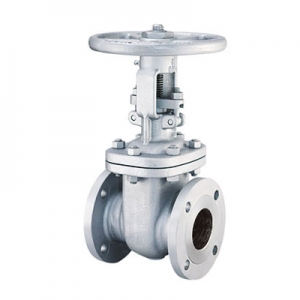Urban areas are growing at a remarkable speed, and development with it is a demand to construct in a clever, sharp and more durable manner. Cities no longer have the luxury of long construction programs or incompetent resource usage. They require solutions that provide quality by respecting budget, deadline and environmental goals. This is where modular construction steps in the form of modern north - offering speed, accuracy and flexibility.
But even the newest building methods cannot succeed without concrete financial guidance. Each stage of an urban development project includes capital, contract and compliance. Without careful management, what starts as a skilled plan can quickly become an expensive challenge. To really unlock the ability of modular manufacturing in city projects, developers must combine it with strong internal financial inspection.
A Modern Approach to Urban Construction
The modular construction has changed how cities think of development. Instead of creating everything on the site, prefabricated devices are produced in a controlled environment, then taken as building blocks andassembled collectively. This approach reduces waste, reduces the project deadline and often improves the quality of materials and work functions in custom settings.
When scaled for urban development, these benefits become even more powerful. Large housing complexes, hospitals and office buildings can be distributed rapidly and with low disruption in the surrounding communities. However, as projects expand in size and complexity, they introduce new layers of financial responsibility. Investments are large, the deadline is tight, and many stakes are at risk due to inaccurate reporting. This is why the integration of Modular Construction in Urban Development. More than a construction trend - it is a strategic step that depends on careful financial control.
Why Financial Controls Matter More Than Ever
Urban construction does not include only crane and concrete; This includes contracts, permits, payments and long-term commitments. Without the oversight, costs can balloon, compliance issues can arise, and tension under pressure with investors or city officials. Internal financial controls act like a safety net to protect both the project and the people behind it.
These checks ensure that the budget remains realistic, the approval goes smoothly, and no money is abused on the way.
They also help in estimating risks before making expensive mistakes, whether the material is in sourcing, contractor payment, or regulatory requirements. In the context of modular projects, where speed is an advantage, being in place of financial posts ensures that moving rapidly means no loss of control.
Building Confidence Among Stakeholders
Each larger urban project brings together a network of developers, architects, contractors, urban planners and investors. Each of them depends on openness and confidence in continuing the project. Strong financial systems make this possible. When everyone knows the costs are monitored, the approval is tracked, and the risks are reduced, the cooperation becomes smooth.
Clear reporting also instils confidence between lenders and government bodies. Modular construction often introduces new techniques or new material combinations, and that innovation sometimes triggers additional investigation. Strong control assurances provide that when the method is modern, the money behind it is managed with traditional care.
Managing Risk While Supporting Innovation
The city's projects appear highly - which means that mistakes are not only expensive, but public. Budget overrun or compliance issues can derail or even phalt rogress. Here, Internal Financial Control. Play an important role. They help to detect irregularities, flag off the flag discrepancies in the challan or parole, and align each expense with the approved project plan.
It is not only about preventing problems; It is about enabling innovation. When developers can rely on their numbers, they can take smart risks - introducing new modular techniques, durable materials, or creative design elements that make urban locations more vibrant. The oversight clears the way for innovation without endangering financial stability.
Aligning Construction with City Goals
Urban development rarely is about buildings; It is about communities. Municipal leaders, residents, and private partners often have shared goals: affordable housing, permanent development and efficient use of resources. The modular construction supports these goals, but it still requires strategic alignment to be successful on a city-wide scale.
Financial planning that integrates the needs of both projects and civil priorities leads to steady approval, less controversy and better results in the long run. This ensures that what is created not only meets today's requirements but also supports tomorrow's development. Given each project as part of the ecosystem in a large city, developers stay in position as reliable partners in shaping urban life.
Conclusion: A Smarter Blueprint for the Future
The combination of modular construction and a solid economic rule changes how we build cities. Together, they distribute projects that are fast, safe and more cost-effective, and meet the complex requirements for modern city life.
For developers, contractors and city planners, lessons are clear: Technology alone has not guaranteed success, but technology will be added with accountability. As cities develop, people who balance innovation with discipline will lead the way, which creates both the present and the future.







